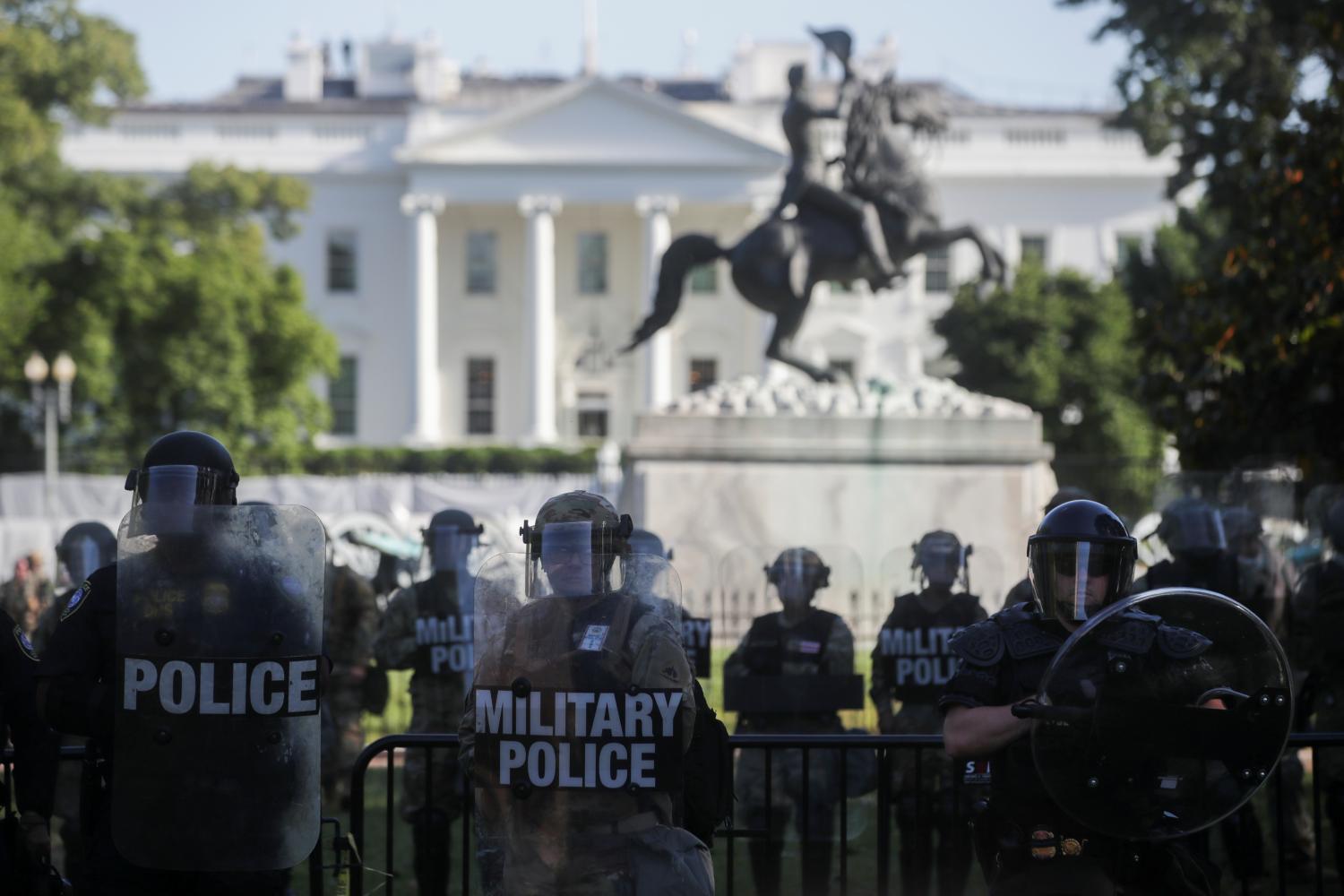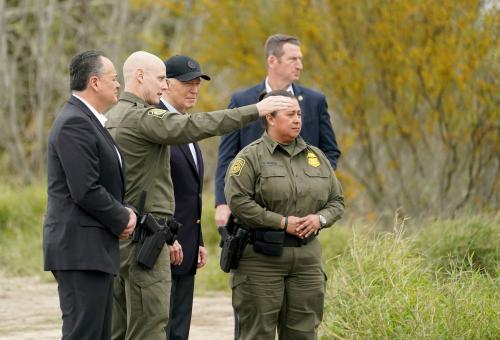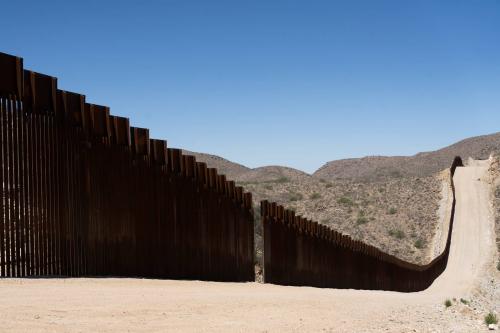The following is a summary of the fifth session of the Congressional Study Group on Foreign Relations and National Security, a program for congressional staff focused on critically engaging the legal and policy factors that define the role that Congress plays in various aspects of U.S. foreign relations and national security policy.
On July 31, 2020, the Congressional Study Group on Foreign Relations and National Security convened online to discuss the president’s authority to deploy the military domestically, including through the Insurrection Act. In the weeks prior to the session, President Donald Trump had deployed both the military, National Guard units, and federal law enforcement personnel in response to popular protest around the country, often over objections by state and local officials. But what was the legal basis for the president’s actions? And what might Congress be able to do if it believes that the president’s actions are inappropriate?
To discuss these timely and important issues, the study group was joined by two outside experts with deep knowledge in this area: Professor Steve Vladeck of the University of Texas at Austin School of Law; and Michel Paradis of Columbia Law School and the Military Commission Defense Office. They circulated several recommended resources as background reading in advance of the session, including:
- Michel Paradis & Scott R. Anderson, “Can Trump Use the Insurrection Act to Deploy Troops to American Streets?,” Lawfare (June 3, 2020);
- Jintzail Hernandez, “Insurrection Act: What You Need to Know,” Roll Call (June 8, 2020) (video featuring interview with Paradis);
- “On the Brink with the Insurrection Act,” The Lawfare Podcast (June 2, 2020), (podcast featuring interview with Vladeck);
- Steve Vladeck, “Why Were Out-of-State National Guard Units in Washington, D.C.? The Justice Department’s Troubling Explanation,” Lawfare (June 9, 2020); and
- Steve Vladeck, “Are the Trump Administration’s Actions in Portland Legal? Are they Constitutional?,” Monkey Cage (July 25, 2020).
The study group coordinator Scott R. Anderson also circulated a handout (download here) with some information on relevant legal authorities for attendees’ reference.
Paradis began the conversation with some background on the Insurrection Act, which is the most widely cited legal authority relating to the president’s authority to deploy the U.S. military domestically. Enacted in 1807 as an addendum to prior statutes authorizing the use of the militias, the original Insurrection Act authorized the use of the standing military in cases of foreign invasion as well as in response to internal insurrection at the request of state authorities. Congress later amended it following the Civil War and enactment of the Fourteenth Amendment in order to allow for the use of the military to enforce federal law against or over the objections of state authorities, but only to enforce certain constitutional rights or where the president determines that rebellion or similar conditions make it “impracticable” to enforce the law through normal means. A few decades later, Congress also enacted the Posse Comitatus Act to restrict the ability to use federal military forces to enforce the law absent express congressional authorization, in large part as a response to Reconstruction-era military occupation in the South. This increased the Insurrection Act’s relevance as a statutory exception to this restriction. None of the conditions set forth in the Insurrection Act clearly applied to recent protests, Paradis noted, raising serious legal questions about any effort on the part of President Trump to invoke the Insurrection Act in response. While some imprecise language in the Insurrection Act might be read this way, doing so would be in serious tension with the original intent and historical practice surrounding the statute.
Vladeck continued by discussing some of the other legal authorities that the Trump administration had used or considered using to deploy armed federal personnel in response to the protests. In many areas, he noted, Congress had provided the executive branch with broad authority to use military and federal law enforcement personnel subject to few conditions and limitations, all of which created opportunities for abuse. He noted that the deployment of state National Guard units to Washington, D.C., earlier in the summer had been pursuant to a previously unnoticed statutory authority, 32 U.S.C. § 502(f), that allowed state governors to volunteer National Guard forces to undertake “[s]upport of operations or missions undertaken by the member’s unit at the request of the President or Secretary of Defense.” Because these forces were not federalized, however, they were not arguably subject to the Posse Comitatus Act. Interpreting this statute broadly, Vladeck argued, could create a problematic scenario where governors of certain states could volunteer their National Guard forces for activities requested by a president of their own party, even where that activity would normally be subject to Posse Comitatus Act limits if pursued through more conventional channels. Vladeck noted that federal statutes authorizing law enforcement personnel–and particularly those in the Department of Homeland Security–appeared to be the legal basis for the federal officers deployed to Portland and elsewhere in the country. While actions directly related to this authority are likely legally defensible, using them as pretext for broader actions related to conduct whose regulation is usually left to the states could raise both statutory and constitutional concerns.
From there, the study group moved to open discussion, including the ability of states to reject or resist federal activities that they do not believe to be legally valid, whether judicial remedies are likely to be available, and how relevant statutory authorities might be changed to limit the risk of executive branch overreach.
Visit the Congressional Study Group on Foreign Relations and National Security landing page to access notes and information on other sessions.



